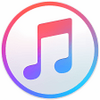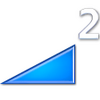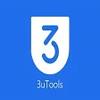This is the perfect program with which to organize all of your music and podcasts
This is the perfect program with which to organize all of your music and podcasts
Pros
- Syncs PCs with Apple-branded devices
- Features long list of radio stations
- Automatic song selections
- Imports music files
- Tracks an unlimited number of songs
- Updates podcasts
- Streams movies in 4K
Cons
- Works best with an account
- Limited file format support
- Search times are slow
- Large installation footprint
Apple iTunes constitutes a port over of the traditional Macintosh and iOS app that allows users to access their music library right from a Windows-based PC. Users who don't have a MacBook or iPad can still access Apple's own iCloud storage infrastructure from their device and sync music with others who do.
Perhaps the biggest draw is the fact that the app manages multiple iOS devices without ever requiring you to leave Windows. While you'll probably want to avoid using the HFSX file system when syncing with the Windows-based version of iTunes, pretty much everything else should work just fine. Music lovers who don't care much about minuscule technical details probably won't ever realize that anything was wrong to begin with.
After you start the app up for the first time, you'll be asked to create or verify an Apple ID. After that, you can download content from the Apple iTunes store at will. You're free to enter payment details right into the software's dashboard, which gives you the freedom to make in-app purchases and download commercially produced music.
All you have to do to search Apple Music is type in an artist or song title. The app will take care of the rest. It can also search for podcasts, music videos, movies and even digital conversions of books on tape.
Each purchase is immediately available on all of your devices. The app currently hosts a library of around 30 million songs as well as a long list of streaming traditional radio stations. Some of these are live streams of terrestrial AM and FM stations while others are based on coverage provided by shortwave broadcasters. Naturally, an overwhelming majority of them are original online broadcasts. Quite a few of these feature famous DJs from outside of the Internet streaming world.
Those who prefer to manage their own music collection exclusively can import and manage convert music files on the fly. At one point, the Windows version of iTunes took quite a bit of flack because it was relatively hard to perform these tasks. It was reluctant to work with certain file formats and had a tendency to lock up.
Engineers from Apple's famed Dev Team have solved most of these problems, though iTunes still won't work with some esoteric audio formats. Ironically, some of these were originally developed for the Macintosh platform, though it's highly doubtful that most people will run into any problems with this aspect of the software.
Unless you're trying to convert MIDI files to a more modern format, you'll probably never notice this issue. In fact, users who never want to work with music files at all could get a ton of mileage out of this version of iTunes.
The app works with books and magazines just as well as it does music. It supports a much simpler interface than most people would be used to, which is a huge advantage for those who are using the software in that way. A detailed New and Noteworthy section shows you what content has come out recently.
Over time, iTunes will learn more about your personal preferences. As soon as it does, the app will offer you material that you can try before you buy it. Users can also visit the iTunes preview site in their preferred browser and then copy over the names of any podcasts or news reports they want to sync to connected devices.
If you connect your iPhone to your PC via USB cords, then iTunes will still be able to communicate with it as long as Windows recognizes it. Some people have complained that it was difficult to send information to and from Apple products on PCs, but iTunes has largely solved this issue. Those who don't want to invest in a dedicated mobile device management program might want to consider using iTunes even if they don't care about all of the content features that the app provides.
Others might want to explore the vast repository of free downloads. Traditional podcasts have always been free to at least some degree, but iTunes has gone further than this and aggregated a large collection of other types of free content that users might be interested in.
At the same time, you're free to take your own music and send it to your iPhone, iPod or iPad just by adding it to your library. Assuming you have a good connection, it shouldn't take very long for your devices to sync together.
This should prove especially attractive to those who have large libraries stored on their main hard disk. The same goes for those who have movie files or other types of material that they want to enjoy while they're on the go.
For the longest time, iTunes suffered from memory management issues. It seems that Apple has fixed these, which in turn has drastically helped to improve performance.
Viewing your library as a physical listing is as easy as clicking on a couple of buttons. If iTunes gives you any exterior web links, then these will resolve in your favorite browser. It even works well with Microsoft Edge as long as its set to be your default browser.
That should be welcome news to those who've set Windows 10 to update automatically and don't want to get their iTunes installation messed up in the process. In fact, the app itself should periodically install updates independent of everything else on your computer, which makes it even easier to use.
Though it might still be challenging to get all of your different devices working together, iTunes for Windows will certainly help.
Pros
- Syncs PCs with Apple-branded devices
- Features long list of radio stations
- Automatic song selections
- Imports music files
- Tracks an unlimited number of songs
- Updates podcasts
- Streams movies in 4K
Cons
- Works best with an account
- Limited file format support
- Search times are slow
- Large installation footprint
Pros
- Intuitive User Interface
- Easily Create Playlists
- Integrated Music Streaming via Apple Music
- Automatic Radio Station Curation
Cons
- Low Number of Filetypes Supported
- Excessive, Possibly Extraneous Features
With iTunes, you can easily manage iOS devices, play video and audio files, and download new content via Apple Music and the iTunes Store. The app excels at dealing with music, but it offers all-in-one support for your entertainment needs.
One of the greatest things about iTunes is that you can manage and import music files that you already own. The music library feature provides dozens of ways to organize your favorite songs, and you can browse via a number of metrics. If you like to create your own playlists from scratch, you can do so, or you can create smart playlists like 'Purchased' that show what songs you've bought over time. There are some file formats not supported by iTunes, but this is still one of the benchmark apps for music organization and playback.
The iTunes Store is an impressive assortment of videos, movies, podcasts, music, and more. If you own multiple devices with iTunes installed, you can access content purchased from the iTunes Store simply by signing in with your connected Apple ID.
iTunes also supports the relatively new Apple Music service, which is Apple's main music streaming service. When you buy a subscription to Apple Music, you can access the Apple Music library, which contains more than 30 million songs. You'll continue to have access to these songs as long as your subscription is valid. There are also numerous radio stations included in the service. Using sophisticated algorithms, the service can build personalized stations from any individual song you select.
With iTunes, you'll be able to manage and control any iPhone, iPod, or iPad connected with your Apple ID. When syncing the device, you can choose the content that gets loaded onto the device. The functionality here is fairly intuitive and smooth, but there are several things that could be done better.
Perhaps the main issue is the fact that it's not possible to update a single facet of the device. For example, you can't update only the video library. Whenever a sync happens, even if you've selected to only add music and no other content, the process still creates a backup and copies all apps to the computer. This can be a bit annoying if you're in a hurry.
However, the backup system is superb, and it takes little time or effort to import a backup into a new device.
One of the only complaints that you'll repeatedly hear about iTunes is that it contains too many features. The app does do quite a bit, but it remains efficient and fast. Not everyone uses all the features, but all the features are used by someone. It shouldn't be surprising considering the name of the app, but it feels a bit heavily-skewed toward music as opposed to TV or movie content.
Pros
- Intuitive User Interface
- Easily Create Playlists
- Integrated Music Streaming via Apple Music
- Automatic Radio Station Curation
Cons
- Low Number of Filetypes Supported
- Excessive, Possibly Extraneous Features




